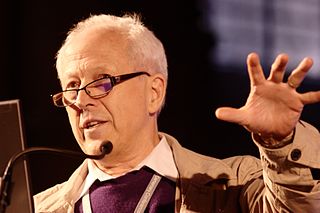A Quote by Chloe Benjamin
I've always been interested in the tension between knowledge and mystery, between science and religion, and the various ways we cope with the unknown. Some of those are productive; some can be attempts to pin down things that are by nature impossible to know.
Related Quotes
Science has only two things to contribute to religion: an analysis of the evolutionary, cultural, and psychological basis for believing things that aren't true, and a scientific disproof of some of faith's claims (e.g., Adam and Eve, the Great Flood). Religion has nothing to contribute to science, and science is best off staying as far away from faith as possible. The "constructive dialogue" between science and faith is, in reality, a destructive monologue, with science making all the good points, tearing down religion in the process.
I have a sense of them being Easter religions, for some reason. Christianity, of course, is a mystery religion, too, and I believe that Arthur Machen was one of those especially interested in the link between the pagan mysteries and the Christian ones. So, my experience was also a Machenesque experience.
This much I can say with definiteness - namely, that there is no scientific basis for the denial of religion - nor is there in my judgment any excuse for a conflict between science and religion, for their fields are entirely different. Men who know very little of science and men who know very little of religion do indeed get to quarreling, and the onlookers imagine that there is a conflict between science and religion, whereas the conflict is only between two different species of ignorance.
I am interested in struggle - between our hearts and our head, between principle and desire - and one of those struggles is with mortality; and no one at all is immune to it, which makes it even more interesting to me. Some people fall in love, some don't. Some sky dive, some don't. Everyone who lives, ages.
Modern physics has taught us that the nature of any system cannot be discovered by dividing it into its component parts and studying each part by itself... We must keep our attention fixed on the whole and on the interconnection between the parts. The same is true of our intellectual life. It is impossible to make a clear cut between science, religion, and art. The whole is never equal simply to the sum of its various parts.
There's this belief that some things can be taken seriously in an intellectual way, while some things are only entertainment or only a commodity. Or there's some kind of critical consensus that some things are "good," and some things are garbage, throwaway culture. And I think the difference between them, in a lot of ways, is actually much less than people think. Especially when you get down to how they affect the audience.
To the security of a free Constitution it [knowledge] contributes in various ways: by teaching the people themselves to know and to value their own rights, to discern and provide against invasions of them, to distinguish between oppression and the necessary exercise of lawful authority, between burdens proceeding from a disregard to their convenience and those resulting from the inevitable exigencies of society.
Everyone recognizes a distinction between knowledge and wisdom. . . Wisdom is a kind of knowledge. It is knowledge of the nature, career, and consequences of human values. Since these cannot be separated from the human organism and the social scene, the moral ways of man cannot be understood without knowledge of the ways of things and institutions.


































